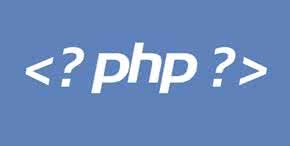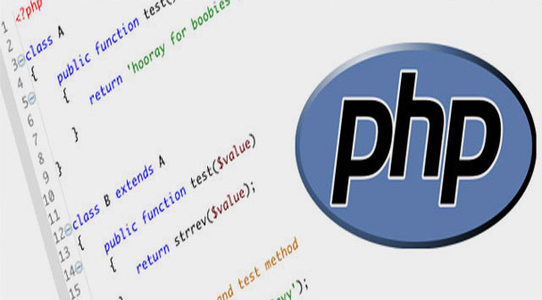10 recommended articles about define() function
The define() function defines a constant. The function of the define() function is to define a constant. Constants are much like variables, except for the following differences: Constants [constant] and variables [variable] have many similarities, so it is easy to confuse them; below, we list the differences between constants [constant] and variables [variable] difference: •A constant's value cannot be changed after it is set A constant value cannot be changed after it is specified;•Constant names do not need a leading dollar sign ($) When setting a constant, there is no need to add a "$" sign in front; •Constants can b1. In-depth php defi
1. php defined() function usage summary

Introduction: The define() function defines a constant. The function of the define() function is to define a constant. Constants are much like variables, except for the following differences: Constants [constant] and variables [variable] have many similarities, so they are easy to confuse; below, we list the constants [constant]...
2. 10 recommended articles about the php define() function

##Introduction: Use the define() function in PHP to define a constant. The so-called constant refers to a quantity whose value does not change. This article collects several articles about PHP constants. I hope it will be helpful to everyone's understanding of PHP constants. Let's take a look. 1. Detailed explanation of the definition and usage examples of PHP constants. We can understand constants as quantities whose values do not change. Once a constant is defined, it cannot be changed anywhere else in the program script. How to define constants: Constants are composed of English letters, underscores, and numbers. However, one thing to note is that the first letter of our constants cannot start with a number. In...
3. About the concept summary of php constants

Introduction: Use the define() function in PHP to define a constant. The so-called constant refers to a quantity whose value does not change. This article collects several articles about PHP constants. I hope it will be helpful to everyone's understanding of PHP constants. Let's take a look.
4. PHP constant declaration and use - Detailed explanation of the definition method of php constants

Introduction: Constants can be understood as unchanging quantities. Once a constant is defined, it cannot be changed anywhere else in the script. A constant consists of English letters, underscores, and mathematics. But numbers cannot appear as initial letters. Use the define() function to define constants in PHP. The syntax format is as follows:
5. php object-oriented guide to using the finalstaticconst keyword

Introduction: This keyword can only be used to define classes and methods. The final keyword cannot be used to define member properties because Final means constant. We use the define() function to define constants in PHP, so final cannot be used to define member properties.

7. How to define and use constants in PHP_PHP tutorial
Introduction: How to define and use constants in PHP. 1. Custom constants* must be defined using the function define()* and their values cannot be changed after definition* Use the constant name directly when using it. You cannot add $s in front of it like a variable. For example: define("PI",3.
##Introduction : In-depth explanation of the usage of PHP define() function and defined() function. The define() function defines a constant. The function of define() function is to define a constant. Constants are much like variables, except for the following differences: Constants. [constan
##9.Discuss the php define() function and the detailed explanation of the use of the defined() function_PHP tutorial## Introduction: Discuss the detailed explanation of the use of PHP define() function and defined() function. The define() function defines a constant. The function of define() function is to define a constant. Constants are much like variables, except for the following differences: Constants. [constan
##10. Playing with php constants_PHP tutorial
Introduction: Playing with php constants. Naming rules: The same naming rules as variables. Method: define() function format: define (constant name, specific value); Example: define(PI,3.14); The comparison between constants and variables is the same: 1: Naming
【Related Q&A recommendation】:
Should define() be capitalized? Remember that in other PHP tutorials, define() is capitalized. , it seems that uppercase and lowercase are different, right? Can anyone please explain it
javascript - avalon2 page switching problem when single page
The above is the detailed content of 10 recommended articles about define() function. For more information, please follow other related articles on the PHP Chinese website!

Hot AI Tools

Undresser.AI Undress
AI-powered app for creating realistic nude photos

AI Clothes Remover
Online AI tool for removing clothes from photos.

Undress AI Tool
Undress images for free

Clothoff.io
AI clothes remover

Video Face Swap
Swap faces in any video effortlessly with our completely free AI face swap tool!

Hot Article

Hot Tools

Notepad++7.3.1
Easy-to-use and free code editor

SublimeText3 Chinese version
Chinese version, very easy to use

Zend Studio 13.0.1
Powerful PHP integrated development environment

Dreamweaver CS6
Visual web development tools

SublimeText3 Mac version
God-level code editing software (SublimeText3)

Hot Topics
 PHP 8.4 Installation and Upgrade guide for Ubuntu and Debian
Dec 24, 2024 pm 04:42 PM
PHP 8.4 Installation and Upgrade guide for Ubuntu and Debian
Dec 24, 2024 pm 04:42 PM
PHP 8.4 brings several new features, security improvements, and performance improvements with healthy amounts of feature deprecations and removals. This guide explains how to install PHP 8.4 or upgrade to PHP 8.4 on Ubuntu, Debian, or their derivati
 7 PHP Functions I Regret I Didn't Know Before
Nov 13, 2024 am 09:42 AM
7 PHP Functions I Regret I Didn't Know Before
Nov 13, 2024 am 09:42 AM
If you are an experienced PHP developer, you might have the feeling that you’ve been there and done that already.You have developed a significant number of applications, debugged millions of lines of code, and tweaked a bunch of scripts to achieve op
 How To Set Up Visual Studio Code (VS Code) for PHP Development
Dec 20, 2024 am 11:31 AM
How To Set Up Visual Studio Code (VS Code) for PHP Development
Dec 20, 2024 am 11:31 AM
Visual Studio Code, also known as VS Code, is a free source code editor — or integrated development environment (IDE) — available for all major operating systems. With a large collection of extensions for many programming languages, VS Code can be c
 Explain JSON Web Tokens (JWT) and their use case in PHP APIs.
Apr 05, 2025 am 12:04 AM
Explain JSON Web Tokens (JWT) and their use case in PHP APIs.
Apr 05, 2025 am 12:04 AM
JWT is an open standard based on JSON, used to securely transmit information between parties, mainly for identity authentication and information exchange. 1. JWT consists of three parts: Header, Payload and Signature. 2. The working principle of JWT includes three steps: generating JWT, verifying JWT and parsing Payload. 3. When using JWT for authentication in PHP, JWT can be generated and verified, and user role and permission information can be included in advanced usage. 4. Common errors include signature verification failure, token expiration, and payload oversized. Debugging skills include using debugging tools and logging. 5. Performance optimization and best practices include using appropriate signature algorithms, setting validity periods reasonably,
 PHP Program to Count Vowels in a String
Feb 07, 2025 pm 12:12 PM
PHP Program to Count Vowels in a String
Feb 07, 2025 pm 12:12 PM
A string is a sequence of characters, including letters, numbers, and symbols. This tutorial will learn how to calculate the number of vowels in a given string in PHP using different methods. The vowels in English are a, e, i, o, u, and they can be uppercase or lowercase. What is a vowel? Vowels are alphabetic characters that represent a specific pronunciation. There are five vowels in English, including uppercase and lowercase: a, e, i, o, u Example 1 Input: String = "Tutorialspoint" Output: 6 explain The vowels in the string "Tutorialspoint" are u, o, i, a, o, i. There are 6 yuan in total
 How do you parse and process HTML/XML in PHP?
Feb 07, 2025 am 11:57 AM
How do you parse and process HTML/XML in PHP?
Feb 07, 2025 am 11:57 AM
This tutorial demonstrates how to efficiently process XML documents using PHP. XML (eXtensible Markup Language) is a versatile text-based markup language designed for both human readability and machine parsing. It's commonly used for data storage an
 Explain late static binding in PHP (static::).
Apr 03, 2025 am 12:04 AM
Explain late static binding in PHP (static::).
Apr 03, 2025 am 12:04 AM
Static binding (static::) implements late static binding (LSB) in PHP, allowing calling classes to be referenced in static contexts rather than defining classes. 1) The parsing process is performed at runtime, 2) Look up the call class in the inheritance relationship, 3) It may bring performance overhead.
 What are PHP magic methods (__construct, __destruct, __call, __get, __set, etc.) and provide use cases?
Apr 03, 2025 am 12:03 AM
What are PHP magic methods (__construct, __destruct, __call, __get, __set, etc.) and provide use cases?
Apr 03, 2025 am 12:03 AM
What are the magic methods of PHP? PHP's magic methods include: 1.\_\_construct, used to initialize objects; 2.\_\_destruct, used to clean up resources; 3.\_\_call, handle non-existent method calls; 4.\_\_get, implement dynamic attribute access; 5.\_\_set, implement dynamic attribute settings. These methods are automatically called in certain situations, improving code flexibility and efficiency.






